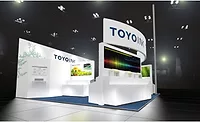Supporting Sustainability Means an End to Waste
We recently had a most pleasing and fulfilling experience when we visited the person responsible for burning regulations in Denmark’s environmental agency. Several efforts had been made to burn some forms of organic waste with varying degrees of success, but permission to introduce new technologies had not been achieved. Wondering why, the applicants asked us to look into it. We started by looking at the legislation requirements (which was the last thing they had done). Naturally, everyone cannot burn everything they wish to create energy, so their expressed disappointment over lack of permission was well founded.
The pleasant part of the effort came from getting an outline about how definitions can be changed with well-founded documentation. If things are, by definition, waste, then there are prescribed handling procedures; if they are “value,” there are other options. Simple but straightforward.
You many feel this does not have any significance for our dialogue related to shouting about salvation of the planet, but let us not forget, waste is big business, and in quite a number of cases, it is a monopoly. As with all monopolies, whether political, economical or social, over time, antibodies are formed for the protection of the organism. All monopolies generate resistance over time, and so has the waste industry. Western countries rely on revenue from the tax on energy. So it’s no surprise when efforts to use “waste” to create untaxed energy get slow or unenthusiastic support.
The technical director of a small food factory explained to us that he did not introduce energy-saving technology because the state required the tax on energy saved to be paid anyway. He was paying as much for getting rid of organics in the water as he was for buying the water, and the state was taking a slice equal to each of the others. That is, approximately one-third of his water bill was for purchasing water, one-third was for the treatment of the water and one-third went to the state tax. He was using around 1,000 m3 water per day, which came into the factory at around 8 °C and left at 28 °C—around 27,000 kW energy wasted. Water cost in Denmark is around €5/m3. If he released the water at 8 °C by recapturing that 27,000 kW, he would pay the same for buying the water and the same taxes. If he removes the organics, he is able to use all or part of them by burning chicken fat for energy or extracting proteins and fat for pet food. The water would then be suitable for regaining the energy and some of the water would be suitable for reuse. Consumption could be reduced to an estimated 300 m3/day. He is currently paying a surcharge for organic load in the water, which would be eliminated. He was partially reducing organic load in his effluent through the use of hazardous chemicals for flocculation, creating 28.8 tons/day of hazardous waste, which had to be trucked away at his expense. Much of that can be changed, if we believe the new legislation.
During another audit, which also involved local government, a commune expressed openly that the introduction of technology, which would both save the small-to-medium enterprises (SMEs) energy and greatly reduce their organic load, would be detrimental because the commune depends on the revenue from waste treatment and needs the organics to keep the bacteria functioning well at the wastewater treatment plant (WWTP). Their only alternative would be to haul in molasses to feed the bacteria. They did not mention that the heat waste from their factory was also of use as it increased the efficiency of the WWTP process.
In Italy, only authorized companies can collect used fats from deep-frying, but it is not specified what the proper treatment would be to render this material safe for the environment, so a number of companies have sprung up, collecting the fat for the revenue but not bothering to handle it responsibly let alone convert it into energy in any way.
We have followed many inspirational presentations from organizations such as Cradle-to-Cradle,[1,2] which offer a very good road map for many actions to be taken, but even logical actions will not necessarily be allowed under current laws and may be contrary to many interests.
Now we have the “End-of-Waste” actions and movements, which look quite promising. In simple terms, European Union Directive 2008/98/EC[3] opens the door for taking material out of the “waste definition” with attendant obligations and allowing the concept of something of value, which provides an exception from “waste management” and allows value recovery. It may not sound like much, but opportunities are boundless for the food and beverage industry, where more than half of materials produced end as a problem for the environment.
The European Commission’s Joint Research Centre in Seville, Spain has released a very good report on the matter, so anyone wishing to follow the wider discussion can visit susproc.jrc.ec.europa.eu/documents/Endofwastecriteriafinal.pdf. The executive summary covers the matter extensively, so have a look and give us feedback.
In the spirit of the efforts of the Global Harmonization Initiative,[4] the work recognizes the necessity of standardized legislation so speculation on differences between states can be avoided. The End-of-Waste legislation mandates harmonization, taking special interest decisions (whether hidden taxes or unjustified laxity or stringency) out of the picture.
David Napper is a member of the editorial team of P3FC. He has worked extensively with European SMEs in attempts to identify trends that could influence their economic success. The solutions can often be implemented incrementally with as little technology transfer and training as possible.
References
1. www.mcdonough.com/cradle_to_cradle.htm.
2. en.wikipedia.org/wiki/Cradle_to_Cradle_ Design.
3. eur-lex.europa.eu/LexUriServ/ LexUriServ.do?uri=CELEX:32008L0098:EN:NOT.
4. www.globalharmonization.net.
Looking for quick answers on food safety topics?
Try Ask FSM, our new smart AI search tool.
Ask FSM →







.webp?t=1721343192)